News
On the tenth day of Kofford: 30% off war and peace titles! December 10 2016

War and peace titles are 30% off December 10th. These special prices are only available for one day, so don't wait!
Orders over $50 qualify for free shipping. Also, local Utah customers can opt to pick up their order directly from our office in Sandy (select this option under the shipping menu).
For more information about the Twelve Days of Kofford holiday sales, click here.
 |
War & Peace in Our Time: Mormon Perspectives Retail: $29.95 |
 |
Even unto Bloodshed: An LDS Perspective on War Retail: $29.95 |
 |
The End of the World, Plan B: A Guide for the Future Retail: $13.95 |
 |
Saints of Valor: Mormon Medal of Honor Recipients, Updated 2nd Edition Retail: $31.95 |
Twelve Days of Kofford Christmas Sale 2016 November 30 2016
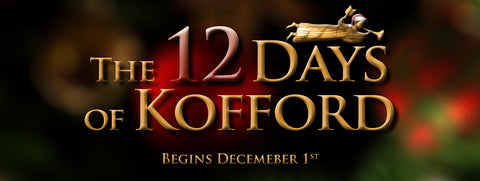
MERRY CHRISTMAS FROM GREG KOFFORD BOOKS
Greg Kofford Books is pleased to announce our annual holiday sale on select popular titles beginning December 1st – December 12th.
Here's how it works: at the stroke of midnight each day, a new blog post will go live on our website listing that day's special offerings along with a discount code that you can enter at check-out to get the holiday price. It's that simple. We will also be posting the daily offering and discount code on our Facebook page at 7am.
*Orders over $50 qualify for free shipping (continental U.S. customers only). Local Utah customers can stop by our office in Sandy to pick up their orders as well. Holiday inventory on some titles may be limited, so be sure to take advantage of the daily sale early.*
To help you plan in advance, here are our scheduled sales:
Day 1 — Brant Gardner titles
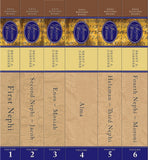 |
Second Witness: Analytical & Contextual Commentary on the Book of Mormon series
|
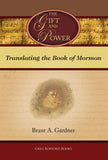 |
The Gift and Power: Translating the Book of Mormon |
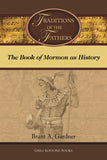 |
Traditions of the Fathers: The Book of Mormon as History Best Religious Non-fiction Award, Association for Mormon Letters |
Day 2 — Adam Miller titles (essays in Mormon theology)
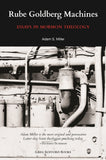 |
Rube Goldberg Machines: Essays in Mormon Theology Retail $18.95 |
 |
Future Mormon: Essays in Mormon Theology Retail: $18.95 |
Day 3 — Personal Essays
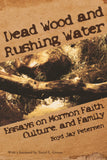 |
Dead Wood and Rushing Water: Essays on Mormon Faith, Culture, and Family Retail: $22.95 |
 |
Mr. Mustard Plaster and Other Mormon Essays by Mary Lithgoe Bradford Retail: $20.95 Sale price: $14.67 |
 |
Writing Ourselves: Essays on Creativity, Craft, and Mormonism Retail: $18.95 |
Day 4 — Blake T. Ostler titles
 |
Exploring Mormon Thought series by Blake T. Ostler 30% off each title |
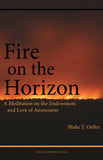 |
Fire on the Horizon: A Meditation on the Endowment and Love of Atonement Retail: $17.95 |
Day 5 — Contemporary Studies in Scripture
 |
Authoring the Old Testament: Genesis — Deuteronomy Retail: $26.95 |
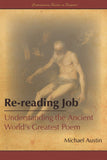 |
Re-reading Job: Understanding the Ancient World's Greatest Poem Retail: $20.95 |
 |
Search, Ponder, and Pray: A Guide to the Gospels Retail: $27.95 |
 |
Beholding the Tree of Life: A Rabbinic Approach to the Book of Mormon Retail: $21.95 |
 |
The Vision of All: Twenty-five Lectures on Isaiah in Nephi's Record Retail: $25.95 |
Day 6 — International Mormonism
 |
The Trek East: Mormonism Meets Japan, 1901–1968 Retail: $39.95 |
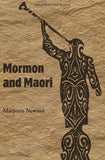 |
Mormon and Maori Retail: $24.95 Best International Book Award, Mormon History Association |
 |
Tiki and Temple: The Mormon Mission in New Zealand, 1854–1958 Retail: $29.95 Best International Book Award, Mormon History Association |
 |
For the Cause of Righteousness: A Global History of Blacks and Mormonism, 1830–2013 Retail: $32.95 Best Book Award, Mormon History Association |
 |
The History of the Mormons in Argentina Retail: $24.95 |
 |
From Above and Below: The Mormon Embrace of Revolution, 1840 – 1940 Retail: $34.95 Best International Book Award, Mormon History Association |
Day 7 — Polygamy titles
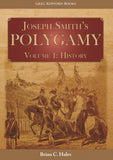 |
Joseph Smith's Polygamy: History and Theology Now in paperback! 30% off each title |
 |
Joseph Smith's Polygamy: Toward a Better Understanding Retail: $19.95 |
 |
Modern Polygamy and Mormon Fundamentalism: The Generations after the Manifesto Retail: $31.95 Best Book Award, John Whitmer Historical Association |
 |
Mormon Polygamous Families: Life in the Principle Retail: $24.95 |
 |
Prisoner for Polygamy: The Memoirs and Letters of Rudger Clawson at the Utah Territorial Penitentiary, 1884–87 Retail: $29.95 |
Day 8 — Contemporary Issues
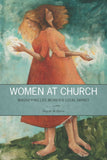 |
Women at Church: Magnifying LDS Women's Local Impact Retail: $21.95 |
 |
Common Ground—Different Opinions: Latter-day Saints and Contemporary Issues Retail: $31.95 |
 |
The Liberal Soul: Applying the Gospel of Jesus Christ in Politics Retail: $22.95 |
 |
Voices for Equality: Ordain Women and Resurgent Mormon Feminism Retail: $32.95 |
Day 9 — Biography
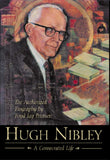 |
Hugh Nibley: A Consecrated Life Retail: $32.95 Best Biography Award, Mormon History Association |
 |
“Swell Suffering”: A Biography of Maurine Whipple Retail: $31.95 Best Biography Award, Mormon History Association |
 |
William B. Smith: In the Shadow of a Prophet Retail: $39.95 Best Biography Award, John Whitmer Historical Association |
 |
The Man Behind the Discourse: A Biography of King Follett Retail: $29.95 |
Day 10 — War and Peace
 |
War & Peace in Our Time: Mormon Perspectives Retail: $29.95 |
 |
Even unto Bloodshed: An LDS Perspective on War Retail: $29.95 |
 |
The End of the World, Plan B: A Guide for the Future Retail: $13.95 |
 |
Saints of Valor: Mormon Medal of Honor Recipients, Updated 2nd Edition Retail: $31.95 |
Day 11 — Mormon Image in Literature
 |
The Mormoness; Or, The Trials Of Mary Maverick: A Narrative Of Real Events Retail: $12.95 |
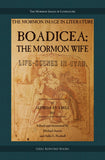 |
Boadicea; the Mormon Wife: Life Scenes in Utah Retail: $15.95 |
Day 12 — Ebook Flash Sale — $1.99 for select titles
To be announced. Stay tuned!
Year in Review and the Year Ahead December 29 2015
2015 was another amazing year for Greg Kofford Books! Here is a recap of the year and a look ahead to what is coming in 2016 and beyond.
Award-winning Publications
Several Kofford titles won awards from the Mormon History Association and the Association for Mormon Letters in 2015:
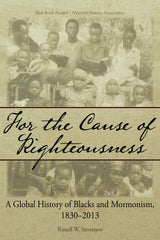 |
MHA Best Book Award For the Cause of Righteousness: A Global History of Blacks and Mormonism, 1830-2013 “Invaluable as a historical resource.” — Terryl L. Givens, author of Parley P. |
 |
MHA Best International Book Award Mormon and Maori “Unflinchingly honest yet unfailingly compassionate.” — Grant Underwood, |
 |
AML Religious Non-Fiction Award Re-reading Job: Understanding the Ancient World's Greatest Poem “A new gold standard for Mormon writings.” — Julie M. Smith, author, Search, |
All 2015 Titles
Here are all of the great titles that Greg Kofford Books published this past year:
 |
Mr. Mustard Plaster and Other Mormon Essays “Vibrant portraits of a kind and loving soul.” — Boyd J. Peterson, author of |
 |
Perspectives on Mormon Theology: Scriptural Theology Each essay takes up the relatively un-self-conscious work of reading a |
 |
Joseph Smith's Polygamy: Toward a Better Understanding “It is a book that will be read and discussed for years to come.” — Robert L. |
 |
Even Unto Bloodshed: An LDS Perspective on War “Indispensable for all future Mormon discussions of the subject.” — Daniel C. |
 |
William B. Smith: In the Shadow of a Prophet “Walker’s biography will become essential reading.” — Mark Staker, author of |
 |
Voices for Equality: Ordain Women and Resurgent Mormon Feminism “Timely, incisive, important.” — Joanna Brooks, co-editor of Mormon |
 |
Traditions of the Fathers: The Book of Mormon as History “Illuminating, prismatic views of the Book of Mormon.” — Mark Alan Wright, |
Looking Ahead at 2016 and Beyond
Here are a few eagerly-anticipated titles currently scheduled for the first part of 2016 and a look at what is in the works for the future:
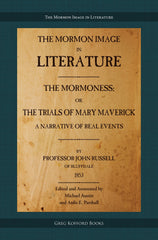 |
The Mormon Image in Literature Series The Mormoness; Or, The Trials Of Mary Maverick: A Narrative Of Real Events Published in 1853, the first American novel about the Mormons is also one of |
 |
The End of the World, Plan B: A Guide for the Future Environmental decline, political gridlock, war and rumors of war, decadence, |
Also forthcoming...
More volumes are in the works for our The Mormon Image in Literature, Contemporary Studies in Scripture, and Perspectives on Mormon Theology series.
Saints, Slaves, and Blacks by Newell G. Bringhurst, revised and updated
Lot Smith: Utah Hero, Arizona Colonizer by Carmen Smith and Talana Hooper
The Trek East: Mormonism Meets Japan, 1901-1968 by Shinji Takagi
Science the Key to Theology by Steven L. Peck
And much, much more...
Thank you for making 2015 exceptional and we are excited about 2016!
LDS Theory of War in 3-Part Series October 08 2015

Kofford Books author Duane Boyce recently discussed the Mormon theology of war and violence in a three-part series at Meridian Magazine.
Boyce is the author of the Even unto Bloodshed: An LDS Perspective on War (2015), which has garnered the following praises:
“A careful and detailed argument against pacifism has long been needed, and it is hard to imagine someone doing a better job of it. The scholarship in this volume is impressive, and it is likely to be the definitive work on the subject for years to come. Truly a major accomplishment.” — K. Codell Carter, Professor of Philosophy, Brigham Young University
“Finally, we have a comprehensive and thorough discussion of war from an LDS perspective." — Royal Skousen, Professor of Linguistics, Brigham Young University, Editor, Book of Mormon Critical Text Project
In the first part of his series, Boyce discusses the question of pacifism vs. non-pacifism in LDS theology. He states:
"There are two fundamental views of war: pacifism, which argues that war cannot be justified and instead must be rejected as a matter of principle, and non-pacifism (of which just-war theory is an example), which argues that war is justified in certain circumstances.
It is easy to understand the appeal of both points of view. On one hand, all disciples of Christ detest violence; it is in the DNA of Christian embrace. And that gives pacifism a natural gravitational force: its appeal is both intrinsic and compelling. But an equally intrinsic and compelling influence in Christian DNA is the love of our families and of our brothers and sisters in general, and the obligation we feel to protect them from being brutalized and murdered.
The pull of these two moral forces creates a natural tension. The love of peace and the love of our brothers and sisters are both genuine, and both exert a natural influence on disciples of Christ. People end up leaning one way or the other, but it seems that everyone actually feels the pull of both.
The same tension seems to appear in the scriptures themselves."
Read part one: "Pacifism or Non-Pacifism? The First Great Question in Developing an LDS Theory of War."
In the second part of his series, Boyce examines the scriptural context of war:
"[One] view thought to support non-violence is the assertion that Book of Mormon wars occurred only because the Nephites were unrighteous. Every war they fought was completely unnecessary because the Lord promised Nephi that the Lamanites would never bother the Nephites if only the Nephites remained righteous (1 Nephi 2:23). We cannot, therefore, draw support for righteous conflict from the Nephites, since it turns out that the Nephites were always unrighteous when involved in conflict.
This claim, however—like the others—also appears to suffer when we examine the text more closely. It turns out that the Book of Mormon actually reports multiple occasions on which the Nephites suffered attack even though they were righteous—a feature of the record that straightforwardly disproves this categorical claim about them."
Read part two: "Do the Scriptures give us a Theory of War?"
In the third part of his series, Boyce discusses a theory of "just war" from an LDS perspective:
"Granted that the Lord abhors violence, what reason is there to think that he abhors all violence for the same reasons? Are all forms of violence the same? Do they all have the same moral character? Are the violence of a rapist and the violence of his victim the same? Do their violent acts have the same moral status? And are all forms of abhorrence-of-violence, then, the same?
And try this question. Why does scripture seem to countenance violence in some teachings/episodes and condemn it in others? Is there any reason to think the different cases and contexts are equivalent? Isn’t it more natural to wonder if there are differences between them and that that’s why they seem to teach different attitudes toward violence?"
Read part three: "Just War Theory and Key Gospel Texts"
Q&A with Even unto Bloodshed author Duane Boyce May 19 2015
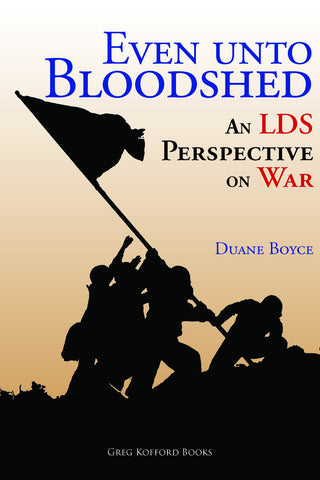
Even unto Bloodshed: An LDS Perspective on War
by Duane Boyce
322 pages
Paperback $29.95 (ISBN 978-1-58958-630-7)
Available May 26th in print and e-book
Preview Even unto Bloodshed here.
Q: What prompted you to begin writing this book?
Duane: Nothing is sadder than war, and yet nothing seems more common. Although it is tempting to just sit back and hope conflict will go away, there is really no hope for this. And that means disciples of Christ, in particular, must be extremely thoughtful on the subject. Is war ever permitted? If not, why not? And if it is, under what circumstances? What can possibly justify the devastation and human misery entailed by military conflict?
It is not difficult to find a multitude of mortals’ opinions on such matters, but for followers of Christ this is far from the main concern. Ultimately, to whatever degree we can discover it, we want to know the Lord’s own disposition toward violence and to embrace that. And that means we want to search the scriptures with care and to bring to bear every relevant consideration. We cannot assume that the matter is simple and that it can be settled with a quick verse or two. It seems to me that the issues are more complicated and subtle than that. That’s why my study led to a book rather than to an essay.
Q: A broad readership is always the most desirable, but is there also an intended audience for this book? And what do you hope they get out of it?
Duane: At some point, almost everyone becomes intensely interested in the moral evaluation of war. It’s hard to say when that will happen, but I think most people face it at some point. This book is for anyone who decides it’s time to consider the matter comprehensively, from a gospel point of view. Comprehensiveness seems important to me. After all, it’s not hard to have a couple of passages in mind that seem to settle the question of war, but the problem is that others can have a different set of passages in mind that, to them, settle the question in a different way. I think many would find it helpful to read a book that tries to approach the matter more comprehensively than that.
In my view, all the relevant scriptural passages cohere in a unified framework about war. They actually don’t compete but genuinely synchronize in their collective illumination of this gospel topic. Anyone interested in how this is possible will be interested in this book. Or so it seems to me, at any rate.
Q: In this book you argue that the position of the pacifist is not tenable, either on secular or scriptural grounds. Why might a Christian be drawn to pacifism, and, conversely, why might another Christian be drawn to non-pacifism?
Duane: All disciples detest violence. It is in the DNA of Christian embrace. And that gives pacifism a natural gravitational force: its appeal is both intrinsic and compelling. But an equally intrinsic and compelling influence in Christian DNA is the love of our families, and of our brothers and sisters in general, and the obligation we feel to protect them from being brutalized and murdered.
The love of peace and the love of our brothers and sisters are both genuine and both exert a natural influence on disciples of Christ. People end up leaning one way or the other, but I think everyone actually feels the pull of both. Given the set of choices, the result is a genuine psychological and spiritual tension. Who doesn’t feel it?
Q: You spend a good deal of time in the book outlining "Just War Theory," a concept first articulated in the Christian tradition by St. Augustine as an attempt to describe the criteria that must be present in order for Christians to morally participate in war. Can you briefly explain how this might or might not intersect with LDS beliefs? Do LDS need Just War Theory in order to understand how to engage in war in the present time?
Duane: Just-war theory is valuable for two reasons. First, in any comprehensive look at war, it is important to consider secular arguments as well as spiritual ones. Just-war theory is a natural starting place because, as far as it goes, it captures most people’s intuitions, and is very helpful. Second, because its origins are Christian, its principles are not uncongenial to a Christian point of view and therefore the theory is relevant to any consideration of an LDS approach. To the degree it is possible to create an LDS framework about war, just-war theory can help in thinking about it.
Q: Where do you see this book being positioned with regard to the ongoing conversation concerning LDS perspectives on war and peace? What original contribution does this book make to that conversation?
Duane: Given the tension identified previously, it is only natural that positions will coalesce around one pole or the other. The focus will be either on the evil of violence or on the necessity of defending human beings from brutality and murder. Both are legitimate, of course, so the real question is how to address both matters within a single conceptual frame. What point of view can give full weight to both considerations and simultaneously remove the tension between them? Creating that kind of frame is the purpose of this book.
Q: If a person holds non-pacifist beliefs regarding war, does that mean such a person is "pro-war?" What are some of the elements of your position that you think pacifists misconstrue or misunderstand? Can the same be said for non-pacifists' understandings of pacifism?
Duane: As to the first question: Stated this broadly, it seems to me impossible for a disciple to be “pro-war.” A fundamental hatred of violence is a property of discipleship, and this means the proper default position is always one of vigorously resisting war as a solution to problems.
As to the second and third questions: I think mutual misunderstanding is unavoidable given the tension between detesting violence and loving those suffering from aggression. Whichever way we lean, it is easy to conclude that those on the other end just don’t appreciate what we appreciate. That’s why people with different views can be impatient with each other. It’s easy to see others as blind to what really matters. In my view, both really matter and no approach to war can be satisfactory if it does not give full weight to both.
Q: Having devoted a lot of time to thinking about war and peace with regard to Christian discipleship, what would you say is the problem most difficult for Latter-day Saints to wrestle with?
Duane: The most difficult problem is the tension I’ve mentioned. It occurs not only in our hearts, but in the scriptures themselves, which at times seem to prohibit violence and at other times to promote it. This seems contradictory. Are the scriptures themselves disconnected? It can seem as if they are, and, if so, we then seem doomed either to flip-flop between the competing views or to settle permanently for one but at the cost of minimizing the other. None of this seems satisfactory. Disconnected scriptures? Spiritual flip-flopping? Permanent underestimation of a legitimate scriptural perspective?
Fortunately, I think all of this unnecessary. In my view, the tension actually rests on a mistake. When we frame the issue more carefully it turns out that scriptural teachings about war fit together perfectly and they do so without minimizing anything. Appreciating the gospel message at a deeper level, the tension at the surface evaporates. To me the reasons for all of this are both fascinating and highly illuminating. It takes a book to show it (at least if we want to attempt anything close to comprehensive), but if I am right that the result is the removal of a common spiritual tension, the effort has been worth it.
